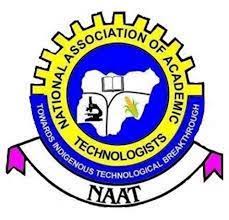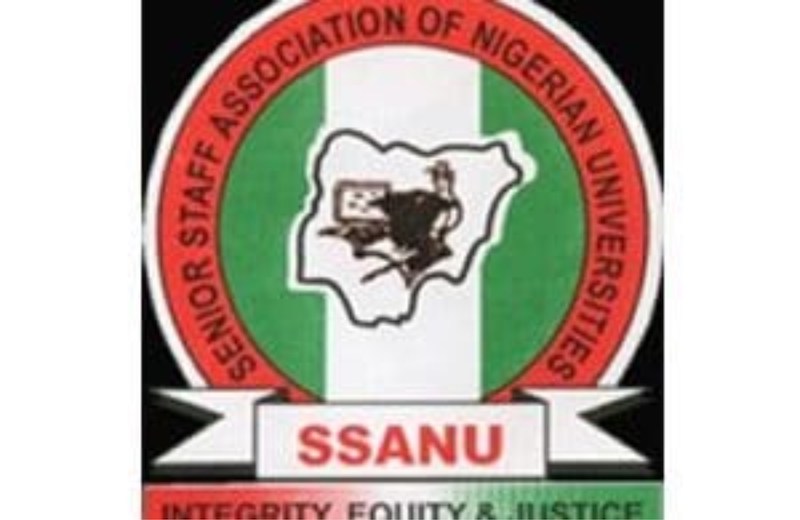Strike: NAAT asks NASS, NANS, other stakeholders to intervene over withheld salaries


The National Association of Academic Technologists (NAAT) has urged the National Assembly, religious and traditional leaders, parents, and student representatives to engage with the Federal Government regarding the delayed payment of five and a half months’ salaries as a result of the 2022 strike.
The proposal followed a prospective walkout by the Joint Action Committee (JAC) of the Senior Staff Association of Nigerian Universities (SSANU) and the Non-Academic Staff Union of Educational and Associated Institutions (NASU) over unpaid salaries.
In 2022, the university-based unions: NAAT, SSANU, NASU, and Academic Staff Union of Universities (ASUU) went on a prolonged strike owing to unresolved requests by the Federal Government, resulting in the then President, Muhammadu Buhari to implement the ‘No Work, no Pay’ policy.
The action heightened tensions between universities and inter-university centres, jeopardising academic programmes.
However, in October of the following year, President Bola Tinubu ordered the payment of four months’ worth of withheld salaries.
ASUU has received money since last year, but the other three non-teaching staff unions are still waiting.
Following an emergency meeting in Abuja, NAAT has requested stakeholders to intervene and guarantee that its members receive their withheld salary and outstanding arrears to avoid disruptions in academic activity.
In a statement signed by its President, Comrade Ibeji Nwokoma, the group expressed displeasure, adding that after several meetings with the administration and the House of Representatives Committee, they have only received assurances but no actual results.
In the statement titled “NAAT demands immediate payment of withheld salaries of members and resolution of all other outstanding issues,” the association mentioned that despite the prolonged wait, it has chosen to pursue a path of diplomacy and advocacy to achieve its demands.
The statement partly read: “The leadership of the National Association of Academic Technologists (NAAT) is compelled to issue this press statement as a response to the non-payment of five and half months withheld salaries and non-payment of 25% and 35% salary increment arrears, non-payment of Occupational Hazard and Responsibility Allowance arrears, release of enabling circular for CONTISS 14 & 15 and non-release of arrears of Earned Allowances as contained in Memorandum of Understanding (MoUs) of 2020, 2021 and 2022.
“It is important to put on record that the National Association of Academic Technologists (NAAT), embarked on a three-day warning strike in March 2024 during which a meeting was convened and chaired by the Honorable Minister of Education, Professor Tahir Mamman also present were the Minister of State for Education, Dr. Yusuf Sununu and the Permanent Secretary, Ministry of Education Mrs Didi Esther Walson-Jack and the leadership of the Union led by the President Comrade Ibeji Nwokoma.
“Similarly, the House Committee on University Education convened a meeting chaired by the Chairman Honorable Abubakar Hassan Fulata.
“In all these meetings, assurances were given to the effect that all the outstanding issues especially the withheld salaries “would be paid soon.
“Unfortunately, as at the time of this release, nothing has been done in that respect by the Federal Government led by the President and Commander-in-Chief of the Arm Forces, Federal Republic of Nigeria, His Excellency Bola Ahmed Tinubu GCFR.
“Having waited this far, the National EXCO at the end of its emergency meeting held at the National Secretariat, University of Abuja on Thursday 4th July 2024, resolved to toe the path of diplomacy and advocacy in actualizing its demands.
“However, if this fails the issue will be referred to the National Executive Council (NEC) at her regular meeting scheduled to hold this July 2024 for the next line of actions.
“NAAT once again wishes to call on well-meaning Nigerians, Religious Leaders, Traditional Rulers, National Assembly leadership, Parents and Students’ Leadership to prevail on Government and ensure implementation of all the outstanding issues mentioned above for a sustainable industrial harmony.”








